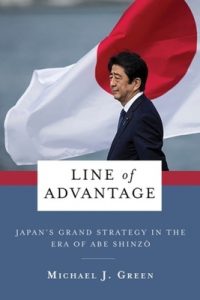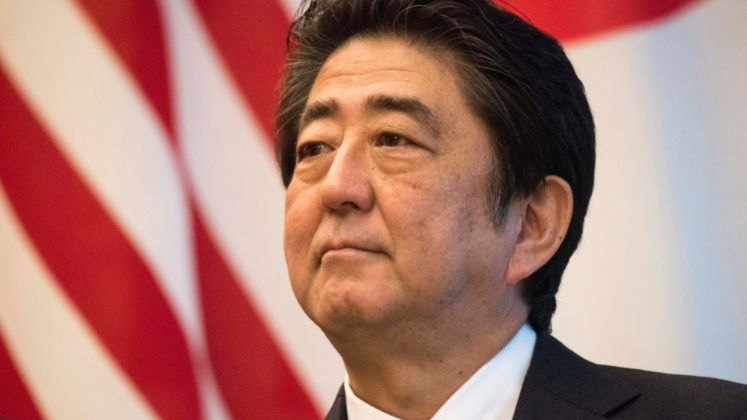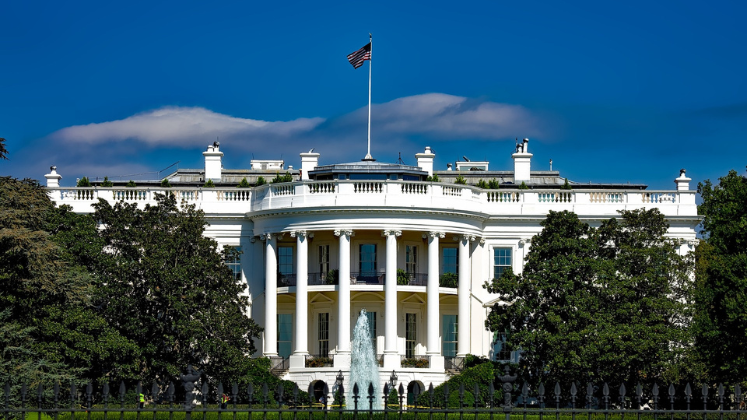In Line of Advantage: Japan’s Grand Strategy in the Era of Abe Shinzo, Michael J. Green explores Japan’s approach to foreign policy and strategy under the leadership of former Prime Minister Abe. The book is an excellent examination of contemporary Japan’s foreign and security thinking and its relations with its Asian neighbours and the United States, writes Joel Campbell.
Line of Advantage: Japan’s Grand Strategy in the Era of Abe Shinzo. Michael J. Green. Columbia University Press. 2022.
 Find this book (affiliate link):
Find this book (affiliate link):![]()
US President Richard Nixon once suggested that postwar Japan, a country not known for its aggressive foreign policy, was an economic giant but a ‘political pygmy’. The long-serving activist Prime Minister Abe Shinzo, who tragically was assassinated in July 2022, was intent on changing such perceptions by elevating Japan’s place among the great powers. To do so, he promoted a strongly nationalist agenda. A fine book by Georgetown University Asian specialist Michael Green, Line of Advantage, lays out the ways that Japan has attempted to create a coherent grand strategy since the Cold War and shows the roots of its strategic thinking that stretch back to the Meiji era of the late nineteenth century. The book is an excellent examination of contemporary Japan’s foreign and security thinking and its relations with its Asian neighbours and the United States.
The book begins by noting that Abe, soon after becoming Prime Minister for the second time, gave a speech in Washington in 2013 in which he called for Japan to become a ‘tier one power’. It was an illustration of his desire for more robust foreign and security policies than pursued by recent Japanese leaders. Green notes that Japan has spent the last 70 years trying to overcome the legacy of the early twentieth century, when it followed an expansionist and imperialist approach that led to disaster in World War Two.
Abe came from the anti-mainstream wing of the Liberal Democratic Party (LDP). Like his fellow nationalists, he suggested that Japan made horrific mistakes in the 1930s and 1940s, but now must take a more active international role because of a special responsibility to save the democratic world. But like Japanese thinkers of earlier times, Abe’s views were shaped by geography, China’s status as a major power and Japan’s search for an effective way of being in the postwar era.

Image Credit: ‘CJCS meets with Japan Prime Minister Shinzo Abe’. DOD photo by U.S. Navy Petty Officer 1st Class Dominique A. Pineiro. Licensed by Chairman of the Joint Chief of Staffs under CC BY 2.0
The notion of the ‘line of advantage’ considers where Japan should draw a line of control and influence in East Asia. The mistake of the generation that led to the disastrous World War Two, Green suggests, was to draw that line on the Asian continent. Japan’s invasion and takeover of eastern China and Southeast Asia were ultimately unsustainable. A sensible approach instead envisions Japan pursuing a maritime strategy in which it patrols the sea lanes of East Asia while not intervening in the politics of regional states. This was the very strategy promoted by the old Imperial Japanese Navy, who were pushed aside by the Japanese Army as it bumbled into China and then the rest of the region.
China is both Japan’s most important regional rival and one of its most important trading and investment partners. The thorny Sino-Japanese tie is a classic case of a cautious maritime power facing a rising continental power. Abe hoped to stand up to Beijing, while not alienating China so much that it damaged economic interdependence. Mainstream Japanese Prime Ministers tried to foster positive ties from the normalisation of relations in 1972 until the early 1990s, but this position became untenable thereafter.
Prime Minister Koizumi Junichiro angered China with his politically calculated visits to Yasukuni shrine which, along with ordinary soldiers who died in Japanese wars, memorialised fourteen Class-A war criminals. Japanese leaders thought they had an agreement with Chinese leaders to share East China Sea resources, and they believe that Beijing reneged on it. Meanwhile, Chinese foreign policy attempted to put Japan into a diplomatic box from which it would become secondary in the region, but Tokyo refused to go along with this and forged deeper ties with states that are skittish about rising Chinese influence.
Green also discusses Japan’s changed relations with the US and East Asian countries. Before World War Two, Japan promoted a form of Pan-Asianism in which it would take a regional leadership role. In the years before Abe’s second tenure, such Asian focus was on the decline, but Abe added his own take on Asianism with the Free and Open Indo-Pacific (FOIP) concept, to link like-minded democratic countries across the Pacific and Indian Oceans. The Trump administration picked up on the idea, replacing the Obama administration’s Rebalance to East Asia with FOIP.
Green concludes by asserting that the Yoshida Doctrine is dead. Prime Minister Yoshida Shigeru in the early postwar era had promoted the notion that Japan needed to align with America in foreign and security policy domains, while focusing on economic development. I am not so sure: I would argue instead that the Yoshida Doctrine has been drastically updated, first by Koizumi, and then under Abe.
Line of Advantage has clear limitations. It overstates the ability or inclination of Japanese leadership to formulate a coherent foreign policy. Since the Cold War’s end, Japan has alternated between studied judiciousness and feckless flailing. Such latter failings have been a bipartisan leadership problem: both the LDP premiers between Koizumi’s tenure and the loss of the Lower House in 2009 and their Democratic Party of Japan (DPJ) counterparts for the next three years were often at a loss on how to respond to regional and global challenges. China took advantage of this weakness to force Tokyo’s hand on several bilateral issues, such as Japan’s holding of a trawler captain after a clash near the Senkaku Islands in 2010. Beijing secured the release of the man by threatening to cut off rare earths to Japan.
The book may also overstate Abe’s role in strategising, as well as downplay the ideas of other leaders such as Ozawa Ichiro, Japan’s ultimate power broker. To be sure, Abe had clear ideas about what he wanted to do, but he depended greatly on the Prime Minister’s Office (Kantei) and the Foreign and Defense Ministries’ bureaucrats to formulate specific policy approaches.
Line of Advantage is nonetheless a useful discussion of Japan’s recently more assertive foreign policy, focusing on Abe’s role in formulating and promoting it.
- This review first appeared at LSE Review of Books.
- Please read our comments policy before commenting.
- Note: This article gives the views of the author, and not the position of USAPP – American Politics and Policy, nor of the London School of Economics.
- Shortened URL for this post: https://bit.ly/3HuAKN3






